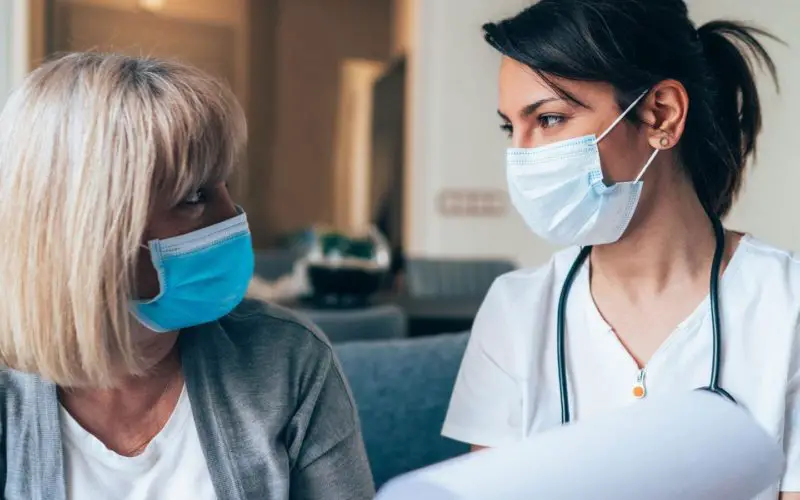The coronavirus pandemic was an unseen enemy, and no one had a clue about how to combat it. However, the medical teams worldwide came up with effective remedial measures to deal with it.
The cost involved in the cure of COVID-19 is high, and you must understand how to help your patients cover up their medical charges.
The Families First Coronavirus Response Act, passed in the US, allows the patients to get their testing done for free. However, the cost of treatment can cost them thousands of dollars.
The patient and their families run into a precarious situation, and thus you must guide them to a remedy to cover up their medical costs. Let us first start with gauging a patient’s ability to fulfill COVID-19 treatment costs.
Treatment Cost: Questions To Consider
Your patient’s cost of treatment will depend upon the following things:
- Do they have a health insurance plan?
- What sort of plan are they enrolled in?
- Is it an in-network or out-of-network service?
- What is the duration of the treatment?
In Case Of No Health Insurance Plan
In an ideal scenario, your patients should talk to a healthcare provider and get insured. However, if they do not have an insurance plan, they must inform the doctor in advance.
The patient should confirm with the healthcare provider that they shall bill the federal government and not the patient.
Your patient must ensure that the following things are covered in their policy:
- COVID-19 testing charges
- Usages of medical equipment like ventilators, oxygen cylinders, etc.
- Ambulance for transportation in case of an emergency
- Treatment-related costs like emergency rooms, nursing facilities, medical beds, drugs, and isolation centers
Your patients need to have a list of providers who have participated in the Human Resources & Services Administration (HRSA) program. They should also browse for various affordable insurance plans.
Besides this, you can ask your patients to use a financial management app like Acorns – however, ask them to read trusted reviews of these apps before using them.
In The Case Of A Health Insurance Plan
Your patients should call up their service provider and find out more information about their policy. They should clarify the coverage of costs in scenarios like lung problems which might be caused due to COVID-19.
In case of extended hospital stays, their treatment charges can be substantial. So they must ensure that it is covered in their policy.

Here are some key points your patients must see in their policy:
- Testing charges
- Treatment-related charges like hospital beds, emergency rooms, hospital visits, nursing facility, rehab center, and medicines.
- Ambulance charges
- Vaccination charges
- Any other medical problem that might occur due to COVID-19
The patient must check whether their plan falls under the category of the Affordable Care Act. In such cases, the coverage plan is the same as that of any viral infection. Also, they should check for additional benefits that might be included in the policy plan.
Bill Payment
Many professionals say that people in the United States are more anxious about receiving a surprise bill. This can happen if your patients are not fully aware of the healthcare policies. They must research and educate themselves to avoid any such scenario.
The following are some ways through which your patients can deal with bill payment-related issues.
1. Cross-Checking Bills
The concerned patient and family should check their hospital bills thoroughly. Often, hospitals make an error in their billing process, which can cause a burden on the patient.

They should ask for a detailed bill and services that they have received. They must understand, assess, and then go for the payment.
2. Seek Support Through The CARES Act
In case your patient needs hospital care and is not insured, the government will pay the hospital charges.
A program was set up in March 2020 through the CARES (Coronavirus Aid, Relief, and Economic Security) Act, which allows the patient to get government assistance in paying their hospital bills.
Many renowned hospitals are a part of this program. Although they aren’t legally obliged to tell the patients about this program, they must educate them about this Act.
3. Seek Financial Help From The Hospital
Several hospitals exist that are not for profit-making. Your patients can ask them for financial help, and if they qualify, the hospital will take care of their bills.
There are facilities for converting the total bill into a monthly payment cycle. If the patient does not qualify for such benefits, they can ask for a discount.
As a medical professional, you can seek third-party financing solutions to provide more affordable healthcare to your patients.
Be sure to review each financing company carefully before picking one – reading a United Consumer Financial Services company review is a good place to start.
4. Negotiate For A Lesser Bill Amount
This will work for patients who are insured as well as uninsured under a health policy. They should get in touch with their provider and find out ways to pay a discounted bill. There are specific ways to convert the total bill into a monthly billing cycle as well.
5. Obtain Help With Your Insurance Premium Plans
The pandemic has also caused turmoil in the job sector. Many people are struggling to cope with their daily finances. If a patient encounters a situation where they cannot pay their premiums, there is a provision to deal with it.
They can request the insurance company to increase the payment deadline. They can also ask the insurance companies to extend their existing policy without an extra charge.
They can request the hospitals and insurance providers to grant them a grace period to pay their bills. In usual cases, this grace period is about three months.
To Sum Up
The coronavirus pandemic has hit the United States as much as any developed nation in this world. The pandemic has led scientists, government officials, healthcare workers, the corporate world, and ordinary people to introspect on challenges related to life.
We realized the importance of a healthy life. We learned the importance of staying safe, getting health insurance, educating ourselves about medical terminologies.
We all hope for a better world now.










